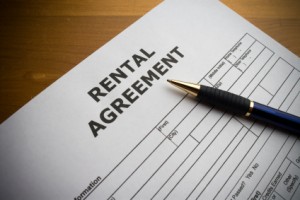Posted by Teresa on October 31, 2011 under Fair Housing Act, Landlord Tips, Marketing for Landlords, Screening and Background Checks | 
 If you’re landlord who has just closed on your first rental property, you may be wondering if this is a good time of year to find good tenants. After all, Thanksgiving is a few weeks away, and that means the winter holidays can’t be far behind. We often hear new landlords ask, “Do people move this time of year?” or, “Will my rental property be sitting vacant until after the New Year?”
If you’re landlord who has just closed on your first rental property, you may be wondering if this is a good time of year to find good tenants. After all, Thanksgiving is a few weeks away, and that means the winter holidays can’t be far behind. We often hear new landlords ask, “Do people move this time of year?” or, “Will my rental property be sitting vacant until after the New Year?”
Of course, every situation is different, but the short answers to the above questions are “yes” and “not necessarily.” Tenants move at all times of the year, and depending on their circumstances, plenty of people move just before or after Thanksgiving, or the week of Christmas, or even on New Year’s Eve.
If you have a rental property ready for your first tenant, you should create a plan for marketing the property right away. Here are a few tips for filling a vacant rental property fast, no matter what time of year it is:
Remember you may not screen out any tenants on the basis of race, color, religion, marital or family status, gender, or disability. New landlords should become very familiar with the Fair Housing Act and all state and local rental ordinances.
Define your best-fit tenant: Who do you want living in your rental unit (staying within the FHA, of course)? Is it a high-end property with a higher rent, or is it middle- or low-income? Will you seek out Section 8 tenants? Is it perfect for students? What is the income requirement to rent your property? Who can afford it?
Post plenty of signs: Place “Now Leasing” or “For Rent” signs in the windows and on the lawn. If possible, put “For Rent” directional signs at intersections, pointing the way to your rental property. Your signs should include the number of bedrooms and bathrooms and your phone number, along with a website where prospective tenants can view photos.
Put up a few fliers: Post fliers where your best-fit tenant will see them. This could be a coffee shop in the neighborhood, a Laundromat, a grocery store, or a community center bulletin board. Include a thorough, well-written description of the unit, and provide tear-off tabs with your contact info. Highlight any features that will sell the tenant on living there. Is it bright and sunny? Are there details like a fireplace or hardwood floors? A patio? A view? Close to trails, the grocery store or library?
Advertise: CraigsList.org is probably the most popular rental advertising site, although you can also post on Rentals.com, ForRent.com and ApartmentFinder.com. The more you advertise, the more exposure you’ll get and the faster you can fill the unit. Write a good ad that appeals to your best-fit tenant.
Incentivize: When you get closer to the holidays, you may find it tougher to get prospective tenants to agree to move. You can always offer an incentive, such as half off the first month’s rent, waiving the application fee, or offering an appliance upgrade if they sign a one-year lease before Thanksgiving.
Pre-screen tenants: Don’t get so antsy about filling the rental unit that you skip the tenant screening process. Background checks and tenant credit checks are vital to starting the landlord-tenant relationship off well. Protect yourself, your property and any other tenants you may have by properly screening each prospective tenant.
Posted by Teresa on October 19, 2011 under Landlord Tips | 
 The landlord-tenant relationship is a unique one. While your tenants are essentially your customers, the dynamic is quite different than in a typical retailer-customer situation. But as with any relationship, communication is the key to a successful landlord-tenant relationship.
The landlord-tenant relationship is a unique one. While your tenants are essentially your customers, the dynamic is quite different than in a typical retailer-customer situation. But as with any relationship, communication is the key to a successful landlord-tenant relationship.
Experienced landlords with successful rental property businesses know a few tricks and tips. Here, we’ve compiled a list of 8 tips to improve landlord-tenant communication, from real landlords.
- Don’t hesitate to over communicate: More is usually better than less when it comes to communication. Provide checklists, notices, friendly tips and regulations for tenants, so everyone is clear on your expectations.
- Don’t make assumptions: If you’re wondering about what’s going on with a tenant as it relates to your rental property, don’t assume you already know the answer. Simply ask.
- Respect boundaries: Even in an attempt to be a good communicator, you can’t call tenants at all hours, expect them to allow you in their unit without notice, or stop them on their way to work to discuss an issue. Be respectful of their time and space. And by all means, stay out of the tenant’s personal life, unless it affects your rental property, the lease or any other legal obligations.
- Keep the lines of communication open: Let tenants know that you are always willing to discuss a problem or answer a question—and back up your word with your actions.
- Ask each tenant about preferred means of communication: It might require a little more effort on your end, but to maintain a high level of communication, you need to reach tenants in the manner they prefer. For some, that’s a phone call. For others, it’s a text. Still others respond best to e-mail. For legal notices, U.S. postal mail is usually required, and would not be subject to a tenant’s preferences.
- Put it in writing: Don’t agree to anything without a written agreement. Allowing an extra parking spot, a kitten, or a wall-mounted flat-screen TV is up to you, but don’t let it happen with just a verbal agreement. Most people would be hard-pressed to later recall what the agreement was, and they usually don’t stand up in court.
- Clarify: If you’re unclear about something you’re hearing from a tenant, say so. Communicate what you heard and ask if that is what they meant.
- Listen: This is the most important of the tips for improving communication. Poor listening skills can kill a landlord-tenant relationship. Listening is challenging in some situations, but with practice, anyone can learn to avoid interrupting when someone is speaking, show interest through active listening and provide feedback.
Posted by Teresa on October 16, 2011 under Fair Housing Act, Tenant Credit Checks, Tenant Screening & Background Checks | 
 The rental market is going strong in most areas of the country, as more folks are renting instead of buying. While many landlords are enjoying high vacancy rates, they still need to be cautious; the economy has really hurt the credit scores and bill-paying ability of millions of Americans.
The rental market is going strong in most areas of the country, as more folks are renting instead of buying. While many landlords are enjoying high vacancy rates, they still need to be cautious; the economy has really hurt the credit scores and bill-paying ability of millions of Americans.
Every landlord has a different standard for accepting new tenants, but the importance of conducting thorough credit checks and tenant background checks is clear. This is the one area that experienced landlords will tell you not to skimp on, because if you do, you will more than likely regret it!
Tenant credit checks and background screening doesn’t take long, and can be inexpensive. Most landlords pass the fee on to the prospective tenant, and most tenants are accustomed to paying the fee. If you have an applicant who has a problem with paying the fee or signing the authorization to conduct a background screening, then you probably don’t want them as a tenant, do you?
The screening process begins with the lease application, where you may ask questions about the applicant’s address history, work history and credit history, and obtain contact information for previous landlords and personal references. You may ask if the applicant has ever broken a lease, if they paid rent on time, why they are moving now, and about their income.
You may not ask a potential tenant about race, religion, family status, disability, or any other information that might indicate a breach of the Fair Housing Act.
Be sure to obtain the applicant’s signature on a separate notice that informs him or her that you will be running a credit check and background screening, based on their name, date of birth and Social Security Number.
Most experienced landlords will also phone references and previous landlords. Be careful how you phrase your conversation, because too many tenant applicants will provide the phone numbers of friends who have agreed to pose as a landlord or employer. Simply identify yourself and ask the person on the other line, “How do you know Joe?” The correct answer may be “I’m his landlord,” or “He used to work for me.” If Joe gave you Tom’s name as a previous landlord, and Tom answers, “Joe and I are on a bowling team together,” you may have spotted an inconsistency in Joe’s story. Be on the lookout for more of them!
Finally, you should run a thorough tenant screening credit check to find out how the applicant pays bills, if they’ve filed for bankruptcy, and what their credit score is. A criminal background screening will reveal whether or not you have a convicted felon or sex offender applying to live in your rental property.
Don’t forget to trust your gut when screening tenants. You don’t have to give a reason for rejecting a tenant in most areas (check your state and local laws)—but do be careful and apply the same criteria to every applicant, or you could be accused of discrimination. You can’t reject an applicant solely for the color of their skin, but you can reject one because their credit score did not meet your minimum requirements—along with the bad feeling they gave you when you met them!
Posted by Teresa on October 11, 2011 under Housing Trends, Rental Market | 
 A new survey focusing on baby boomers and their home buying plans was released today by Coldwell Banker Real Estate. The survey of 1,300 agents and brokers finds that 87% of respondents have clients who already own or are looking to buy investment property. About 22% of agents responding said that at least half of their baby boomer clients fall into this category.
A new survey focusing on baby boomers and their home buying plans was released today by Coldwell Banker Real Estate. The survey of 1,300 agents and brokers finds that 87% of respondents have clients who already own or are looking to buy investment property. About 22% of agents responding said that at least half of their baby boomer clients fall into this category.
Jim Gillespie, CEO of Coldwell Banker Real Estate, said that baby boomers drive the U.S. economy; while they are a diverse group and cannot be generalized, their attitudes towards real estate can be telling. Right now, the economy is delaying boomers’ decisions to sell their existing homes, whether to downsize or relocate.
Coldwell Banker Real Estate’s data indicates that the boomers who can afford to are looking for a retirement home or a second home for investment, and many see now as the time to take advantage of lower home prices.
Additional survey findings:
- Younger baby boomers (ages 47 – 55) are more interested in purchasing a second home than older baby boomers (ages 56 – 64), by a margin of 34% to 22%.
- 31% of younger baby boomers are looking to sell an existing home and buy a larger home, compared to just 6% of the older group.
- Downsizing is more appealing to older (80%) than younger (52%) boomers. For the majority of older boomers, the reason for downsizing is not to save money, but to simplify their lives.
Interest rates are historically low, so younger baby boomers are actively seeking income streams for retirement. Perhaps they will be joining the ranks of the nation’s landlords, trading fixed annuities and bank CDs for property management guides and a set of handyman tools.
Posted by Teresa on October 7, 2011 under Landlord Paperwork and Forms, Lease and Rental Agreements | 
 When leases are about to expire, landlords need to decide whether or not to renew and re-sign with a tenant, or notify them there will be no lease renewal. It’s important to know the terms of your lease agreement, obviously, but most require a 60- or 30-day notice from either party if a lease will not be renewed. Remember, it’s up to the landlord whether or not to offer a new lease and keep a tenant. Of course, tenants who wish to move have the option to end the relationship at the end of the lease, but if the landlord decides a tenant is out, there’s not much a tenant can do.
When leases are about to expire, landlords need to decide whether or not to renew and re-sign with a tenant, or notify them there will be no lease renewal. It’s important to know the terms of your lease agreement, obviously, but most require a 60- or 30-day notice from either party if a lease will not be renewed. Remember, it’s up to the landlord whether or not to offer a new lease and keep a tenant. Of course, tenants who wish to move have the option to end the relationship at the end of the lease, but if the landlord decides a tenant is out, there’s not much a tenant can do.
Landlords need to know in advance if a tenant plans to stay or move. It’s not a bad idea to send the tenant a notice, ask if they’re staying or leaving, and have them check a box: I’m interested in renewing; or I’m moving out. Sending a notice ahead of time is also a great way to remind tenants that any security deposit paid is just that—and that the last month’s rent will be due as usual, with the security deposit covered separately.
If the tenant is paying rent on time and abiding by the terms of his or her lease, it’s to the landlord’s advantage to keep the tenant in place, avoiding the expenses and time associated with finding a replacement. Some landlords who want to keep their tenants send a friendly letter notifying them that the lease is up for renewal, and offering a discount on the standard annual rent increase because they are “preferred tenants.” Others put the new rent at the standard rate and offer a $50 gift card, new light fixtures, or some other perk for renewing.
The strong rental market means landlords can be a bit choosier. So if a lease renewal date is coming up and a tenant no longer fits your requirements, you simply need to notify him or her that you will not be renewing the lease. Give at least 30 days’ notice, or more if you lease or local laws require it.
3 Reasons to Let a Bad Tenant Go:
- Late rent: Even if a tenant pays the rent every month, if they pay late every month, it’s a hassle. Get someone in who will pay every month, on time.
- Breaking terms of lease: Every item in the lease was agreed to by your tenant when they signed it. If you have a tenant who is smoking in a non-smoking unit, or piling garbage around the dumpster instead of in it, or taking up three parking spots instead of one, you may decide that you no longer wish to put up with the headaches a tenant like this can cause.
- High maintenance: Certainly, legitimate complaints about repairs and maintenance are your responsibility as a landlord. But if you have a tenant who complains about a light bulb burning out, or the lack of air conditioning in a unit that never had it, or any number of other insignificant non-issues, you have the right to not renew the lease.
Protect your rental property and assets through tenant background checks. Proper tenant screening will ensure you are leasing to the best possible tenants.
Posted by Teresa on October 4, 2011 under Landlord Tips | 
 Laminate flooring can be easy to care for, long lasting and practically indestructible—which should make it a great choice for rental properties. However, landlords who are experienced in dealing with laminate flooring have differing opinions. If you’re considering using laminate flooring in your rentals, read on for some pros and cons, provided by actual landlords.
Laminate flooring can be easy to care for, long lasting and practically indestructible—which should make it a great choice for rental properties. However, landlords who are experienced in dealing with laminate flooring have differing opinions. If you’re considering using laminate flooring in your rentals, read on for some pros and cons, provided by actual landlords.
First, the Cons:
- Laminate floors are good in moist areas, but won’t tolerate standing water, or you’ll soon have separation in the seams.
- Laminate flooring can be fairly expensive.
- The floors can tear when moving heavy items, such as refrigerators.
- Cheaper level flooring will show wear in heavy traffic areas.
- It cannot be refinished or sanded.
- The surface can be slippery, with a risk of falling tenants or children.
- High traffic homes, like rentals, may not be the best fit for laminate flooring products.
Now for the Pros:
- Laminate floors look great.
- They can attract a higher level of tenants.
- Laminate costs less than hardwood.
- They are easy to install.
- The variety of wood species available is higher than ever.
- Some are warranted for 20 years or more.
- Laminate floors are easy to maintain.
- They don’t buckle, stain or warp.
- The finish is often scratch-resistant.
- Laminate often holds up better than carpet.
So there you have it. Some landlords have installed laminate successfully, while others say tile, vinyl plank flooring or inexpensive carpet work better for their rentals.
 If you’re landlord who has just closed on your first rental property, you may be wondering if this is a good time of year to find good tenants. After all, Thanksgiving is a few weeks away, and that means the winter holidays can’t be far behind. We often hear new landlords ask, “Do people move this time of year?” or, “Will my rental property be sitting vacant until after the New Year?”
If you’re landlord who has just closed on your first rental property, you may be wondering if this is a good time of year to find good tenants. After all, Thanksgiving is a few weeks away, and that means the winter holidays can’t be far behind. We often hear new landlords ask, “Do people move this time of year?” or, “Will my rental property be sitting vacant until after the New Year?”



